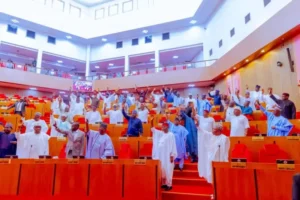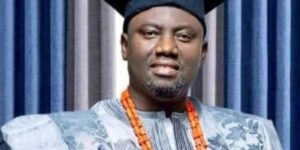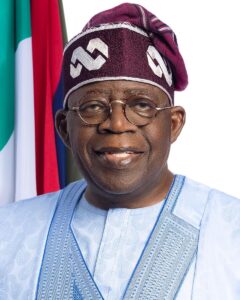
African american girl raising her hands while sitting on her desk in the class at school. school and education concept
The Executive Director of A Mother’s Love Initiate (AMLi), an NGO, Mrs Hanatu Enwemadu, said there is a need to regulate the entry age of children into school to avoid abuse of the system.
AMLI is an NGO in Nigeria with focus on the African child’s education, equal rights and opportunity in the digital environment.
The NGO works in collaboration with the Civil Society Actions Coalition on Education (CSACEFA) to achieve its objectives.
Pannigeriannews.com reports that Jan 24 of every year is set aside by the UN to mark the World Education Day.
The theme of the 2024 World Education Day is: “Learning for Lasting Peace”.
According to Enwemadu, regulation is essential to enable children reach an average whereby, generally, their mental and social skills have started developing for them to withstand the demands of learning environment.
The AMLi director, who frowned at “hurried child syndrome” that had become a tradition in the society, advocated for a nationwide regulation of school entry age for the Nigerian child.
She said: “As the world marks International Day for Education, it is an opportunity to right the wrongs in the system for a better society.
“This 2024, as the world focuses on the well-being of children through the lens of education with the theme, `Learning For Lasting Peace’, it is pertinent that Nigeria, Africa as a whole and the world at large focus on what manner of children will create lasting peace.
“A mentally stable and balanced child is one who has been allowed to grow and develop at his/her natural pace.
“The mental health of children has its foundation in the appropriateness of school entry age.
“Children who are hurried through their learning and growth process eventually suffer deformity from ‘The hurried child syndrome’ and turn out to be psychologically, socially, and emotionally imbalanced.”
According to her, the Nigeria government seeks to ensure that every Nigerian child returns to school and acquires basic literary and numeric skills at the age of 10.
“AMLi is advocating that children should only be allowed to enrol into age-related classes. Appropriateness of maturity, age, and psyche of children in schools must be a concern to all.
“Non-adherence to this approach contributes to the learning crisis currently affecting education in Nigeria”, she said.
According to her, as economic pressure sways and parents part with their children at an early age, government should ensure that such practice is halted for the good of all.
She appealed to the National Orientation Agency (NOA) and others to ensure that Nigerians were sensitised on the implications of under-age school enrollment which she viewed as hurrying children in their formative years.
She described the practice as a form of child abuse that could result in traumatic experiences that could leave an adverse effect on the person.
She noted that the effects could have impact on individual’s adulthood, of which is a minus on the society.
She appealed to education development partners, donors and NGOS to extend interventions to all parts of the country for an even developmentdevelopment.







